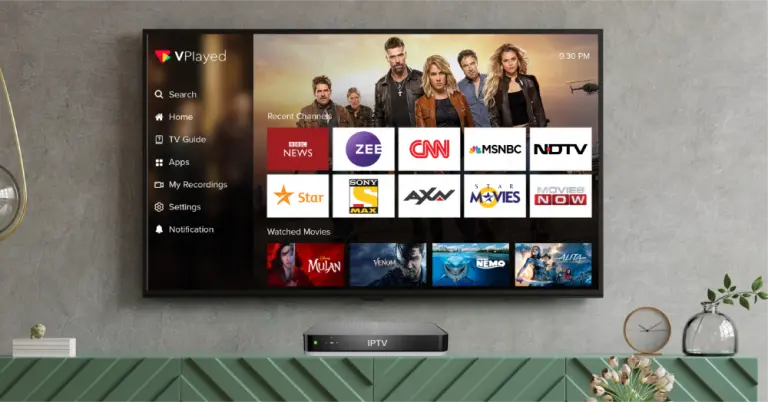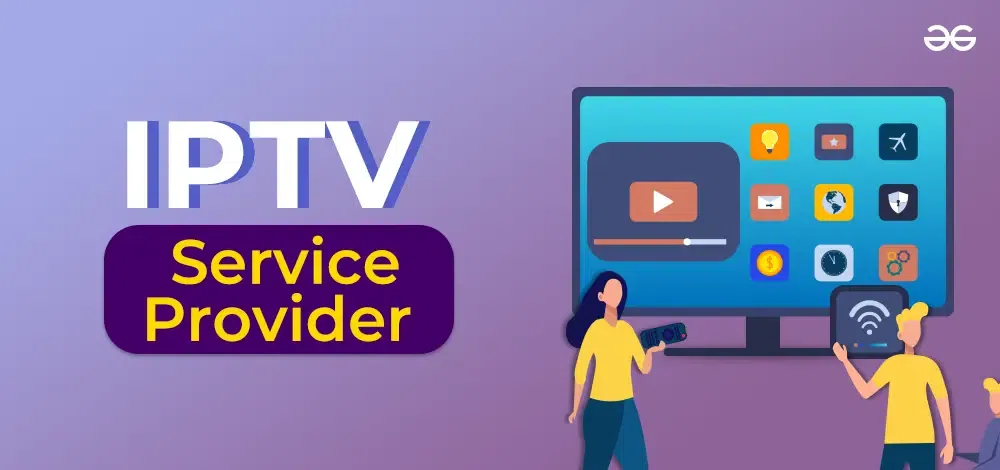The demand for Internet Protocol Television (IPTV) services has been gradually increasing in the current digital era. IPTV offers a more flexible and individualized viewing experience by enabling customers to stream television shows online. If you’re thinking about launching your own IPTV service, this thorough guide will bring you through all the necessary steps to do so.

Table of Contents
Understanding IPTV
What is IPTV?

Internet Protocol Television, or IPTV, is a system that transmits television programming over the internet. With IPTV, customers may view programming on internet-connected devices including computers, smart TVs, smartphones, tablets, and TVs, in contrast to traditional cable or satellite TV.
The Advantages of IPTV Service
The flexibility of IPTV is one of its main benefits. As long as they have an internet connection, users may watch their preferred programs and channels whenever and wherever they choose. In order to improve the viewing experience overall, IPTV also provides interactive capabilities including video-on-demand, pause, rewind, and fast-forward.
Market Research
Identifying Your Target Audience
Identifying your target market is essential when starting an IPTV business. Do you target a certain niche, sports fans, or movie buffs? You may adapt your content and marketing techniques by being aware of the preferences of your audience.
Analyzing Competitors
Do some local IPTV service provider research. Examine their products, costs, and client reviews. You’ll learn from this competitive analysis what works and what doesn’t in the IPTV market.
Content Acquisition
Licensing and Copyright
You must acquire the required licenses and rights from content owners and creators in order to distribute content legally. Make sure your content acquisition procedure complies with copyright rules because copyright violations can have serious legal repercussions.
Building a Diverse Content Library
A library with a variety of content will appeal to more people. To draw in a larger consumer base, think about providing a variety of channels, such as sports, news, entertainment, and local programming.
Technical Infrastructure
Servers and Hosting
For uninterrupted streaming, it’s essential to set up sturdy servers and trustworthy hosting. Invest in top-notch server hardware, and pick a host with a solid uptime track record.
Middleware Solutions
User interfaces, content distribution, and user subscriptions are all managed with the use of middleware software. Choose a middleware solution that meets your business demands and offers an intuitive user interface.
Content Delivery

Streaming Protocols
Select the appropriate streaming protocols to guarantee lag-free playback. Real-Time Messaging Protocol (RTMP) and HTTP Live Streaming (HLS) are popular protocols.
Quality of Service (QoS)
Retaining consumers requires maintaining a good QoS. Ensure a strong internet connection, little to no buffering, and top-notch audio and video.
User Interface and Experience
Designing an Intuitive UI
The total experience is improved with a user-friendly UI. Invest in a user interface (UI) design that is simple and easy to use.
EPG (Electronic Program Guide) Implementation
An EPG helps users find and schedule their favorite shows. Implementing an EPG is crucial for user convenience.
Monetization Strategies
Subscription Models
To accommodate diverse client preferences, think about providing several subscription plans, such as monthly, annual, and premium packages.
Advertisements and Sponsorships
By including sponsorships and adverts in your IPTV service, you can make more money. In order to ensure customer pleasure, make sure that adverts are pertinent and unobtrusive.
Legal and Regulatory Compliance
Licensing and Permits
Adhere to all legal requirements and obtain the necessary licenses and permits to operate your IPTV service legally.
Copyright Infringement Avoidance
Keep a close eye on your material library to avoid copyright violations. To ensure compliance, impose tight content screening procedures.
Marketing and Promotion
Building a Brand
Develop a compelling brand identity that appeals to your target market. Building familiarity and trust through consistent branding throughout all platforms.
Online and Offline Marketing

To reach a larger audience, make use of online platforms like social media, email marketing, and SEO. Don’t overlook conventional marketing strategies like leaflets and regional gatherings.
Customer Support
Handling Technical Issues
Offer prompt technical support to address user issues and troubleshoot technical problems effectively.
User Inquiries and Complaints
Create distinct routes for user questions and complaints. To establish a good reputation, respond quickly and expertly.
Scaling Your Business
Expanding Server Capacity
As your user base grows, invest in additional server capacity to accommodate increased demand.
Adding New Features
By consistently introducing new features and functionalities that improve the customer experience, you can keep your business competitive.
Measuring Success
Key Performance Indicators (KPIs)
Track KPIs such as subscriber growth, retention rate, and revenue to gauge the success of your IPTV service.
User Engagement Metrics
Monitor user engagement metrics like average watch time and content popularity to tailor your content strategy.
Challenges and Pitfalls
Content Piracy
Implement robust content protection measures to prevent piracy and unauthorized access to your content.
Technical Outages
Put support and backup systems in place to prepare for technological breakdowns and reduce downtime.
Future Trends
4K and Beyond
Stay ahead of the curve by offering content in higher resolutions, such as 4K and beyond, to cater to users with advanced displays.
Integration with Smart Devices
Explore opportunities for integrating your IPTV service with smart devices like voice assistants and IoT devices.
Conclusion
If done properly, launching your own IPTV service can be profitable. You can create a prosperous IPTV business by comprehending the market, obtaining top-notch material, and offering a first-rate customer experience. Keep an eye out for new trends and make constant adjustments to the changing world of digital entertainment.
FAQs
- Is it legal to start an IPTV service?
- Yes, but you must obtain the necessary licenses and permissions to distribute copyrighted content legally.
- What equipment do I need to start an IPTV service?
- You’ll need servers, middleware software, and a reliable hosting provider.
- How can I prevent content piracy?
- Implement content protection measures and regularly monitor your content library.
- What is QoS in IPTV?
- Quality of Service (QoS) refers to the overall performance and reliability of your IPTV service.
- What are the future trends in IPTV?
- Future trends include higher resolutions like 4K and integration with smart devices for a seamless user experience.
Creating your own IPTV service is a thrilling adventure full with chances for achievement. You may carve out a place in the rapidly expanding IPTV market if you put in the effort and are committed to providing high-quality content.


